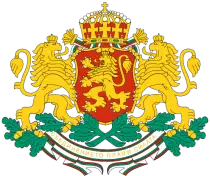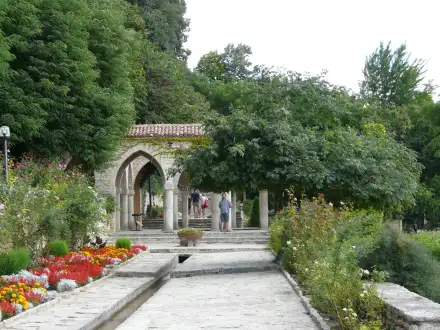Bulgaria is a country of remarkable diversity, offering something for everyone — from relaxing on the beautiful beaches of the Black Sea, to enjoying active holidays in the mountains, to exploring historic towns and monasteries. Its rich culture, traditions, and excellent cuisine make Bulgaria an ideal vacation destination, providing authentic travel experiences.
Bulgarian cuisine is a blend of Balkan, Mediterranean, and Oriental flavors. Typical dishes include Shopska salad, kebapche (grilled sausages), banitsa (cheese-filled pastry), and tarator (cold yogurt and cucumber soup).
Bulgaria has a long winemaking tradition, and its wines are gaining increasing recognition worldwide. Regions such as Melnik, Plovdiv, and Slavyanka are famous for their excellent wines, especially from local grape varieties like Mavrud and Melnik.
The Bulgarian Black Sea coast is one of the main holiday destinations for tourists. It features numerous resorts, such as Pomorie and Golden Sands, which offer excellent conditions for relaxation, with beautiful beaches and well-developed tourist infrastructure.
Less crowded places, such as Sozopol and Nesebar, enchant visitors with their historic character and ancient ruins. Nesebar, a UNESCO World Heritage site, is a charming town with narrow streets and historic churches.
Discover the best flights to Bulgaria See current prices and promotions.
Check flights to Bulgaria
Why Bulgaria was ruled by emperors
You were probably taught that in Europe there were two emperors: the one in Constantinople (later Moscow) and the Western, Holy Roman Emperor. But there was also a third — in Bulgaria.
Bulgarian rulers adopted the imperial title (tsar, equivalent to the Byzantine basileus) under specific circumstances. This did not result from marriages to Byzantine princesses “clad in purple,” as in the case of Moscow. Their imperial dignity was the outcome of military successes and rivalry with Byzantium.
Initially, Bulgarian khans were treated by Byzantium as barbarian rulers. However, after Byzantium’s defeat in 681, Emperor Constantine IV was forced to recognize their state. Khan Simeon I (893–927) was the first to adopt the title of emperor.
Simeon waged wars against Byzantium and achieved significant victories — in 913 he reached Constantinople and forced recognition of his authority. In 917 he defeated the Byzantine army at Anchialos, and in 919 he proclaimed himself Emperor of the Bulgarians and Romans.
Byzantium initially refused to acknowledge this, but in 927 Emperor Roman Lekapenos, after further wars, recognized Simeon’s son Peter I as Tsar of the Bulgarians.
The Christianization of Bulgaria
Bulgaria adopted Christianity in 864 or 865 during the reign of Khan (Tsar) Boris I Michael. This was relatively early compared to many other European nations, though not the earliest. Armenia, Georgia, Croatia, and the Carolingian lands (France, Germany, Belgium, etc.) had adopted Christianity as the state religion earlier.
Bulgaria was located between Byzantium and the Frankish Empire, both competing for influence in the region. Khan Boris I initially leaned toward baptism from the Franks but ultimately accepted it from Byzantium.
After the baptism in 870, Bulgaria received an autocephalous church, ensuring its religious independence. In 893, Old Church Slavonic became the liturgical language — significant because many other countries had to use Latin or Greek.




![Monument of Tsar Kaloyan, the Roman Slayer [1197–1207] in Varna](https://www.kuleta.pl/htm/b/bulgaria/warna/warna-004_kop304_1.jpg.webp)



